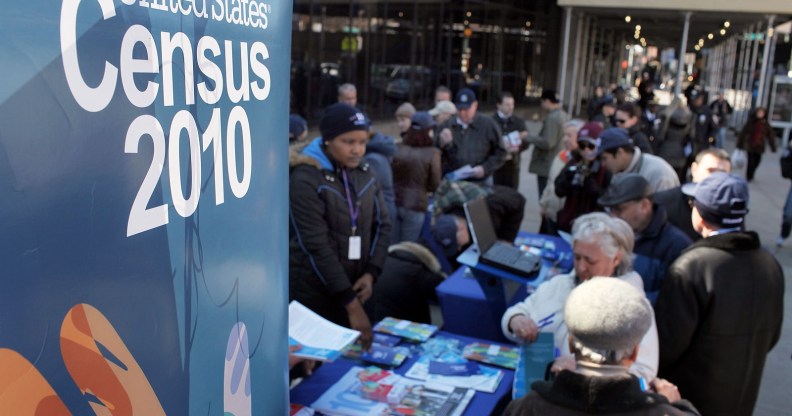US census could start asking about sexuality

A bill has been submitted that would add questions about sexuality to the US census.
Censuses are country-wide population surveys that measure a number of characteristics including race, marital status and religion.
The UK government recently called for “vital” questions about sexuality and gender identity to be added to the next Census in England and Wales, in order to help monitor LGBT diversity and guide policy.
The idea has also caught on across the pond – with a Democratic lawmaker also suggesting a change.
US congressman Raul Grijalva suggested the change ahead of the next US census, set to take place in 2020.
He wants new questions added to the census to ask about sexual orientation and gender identity, in order to record gender on LGBT identity.
Grijalva said: “Public officials draft and implement policies impacting the lives of everyone living in the United States – it is vital that they have robust information about the diverse communities within our populace, including the LGBT community.
“The current lack of sound data about sexual orientation and gender identity in many federal surveys means we are ill-prepared to meet the needs of these communities. To go uncounted is to be unseen in the eyes of policymakers, which is why we must develop a credible and confidential understanding of these vulnerable populations we currently know too little about.
“I commend the administration for convening an interagency working group to discuss best practices for federal LGBT data collection.
“This bill builds on the interagency working group’s success by making data collection within this community law.
“I urge my colleagues from both sides of the aisle to join me in ending those knowledge gaps by passing the LGBT Data Inclusion Act.”
According to the Washington Blade, the legislation has been endorsed by scores of rights groups including the Human Rights Campaign, the National LGBTQ Task Force Action Fund, the National Center for Transgender Equality, the Transgender Law Center, the the National Center for Lesbian Rights, GLSEN, and GLAD (GLBTQ Legal Advocates & Defenders).
Laura Durso of the Center for American Progress said: “The LGBT Data Inclusion Act of 2016 represents a new wave of LGBT equality legislation, a push for not just legal equality, but also true lived equality.
“In a nation as large and diverse as the United States, understanding the varied needs and experiences of the American public remains necessary to crafting policy solutions that leave no one behind.
“LGBT people remain disproportionately likely to live in poverty, experience homelessness, and be unemployed, and while there may not be a silver bullet to solving these problems, in order to find answers, we must begin asking questions.”
Hillary Clinton’s LGBT manifesto has promised reform on the issue.

